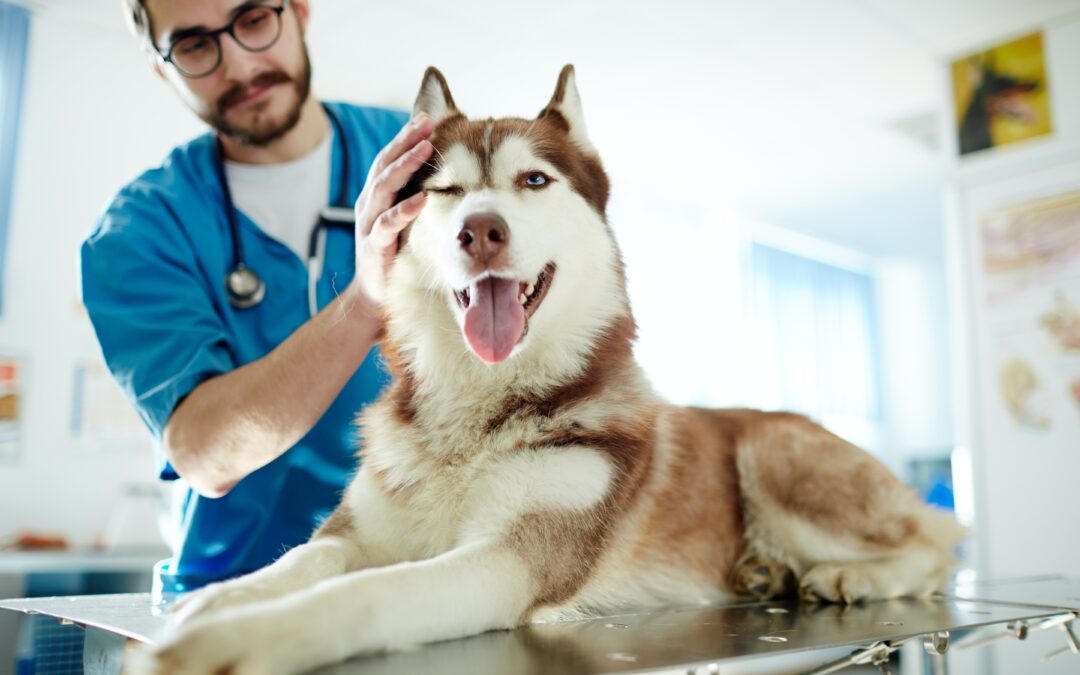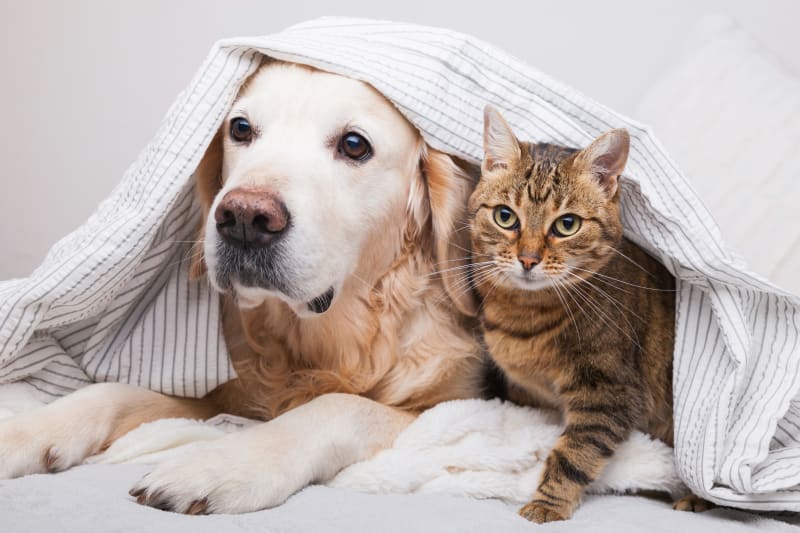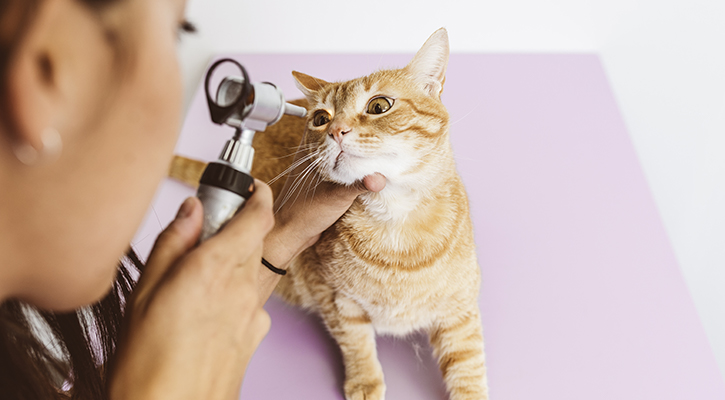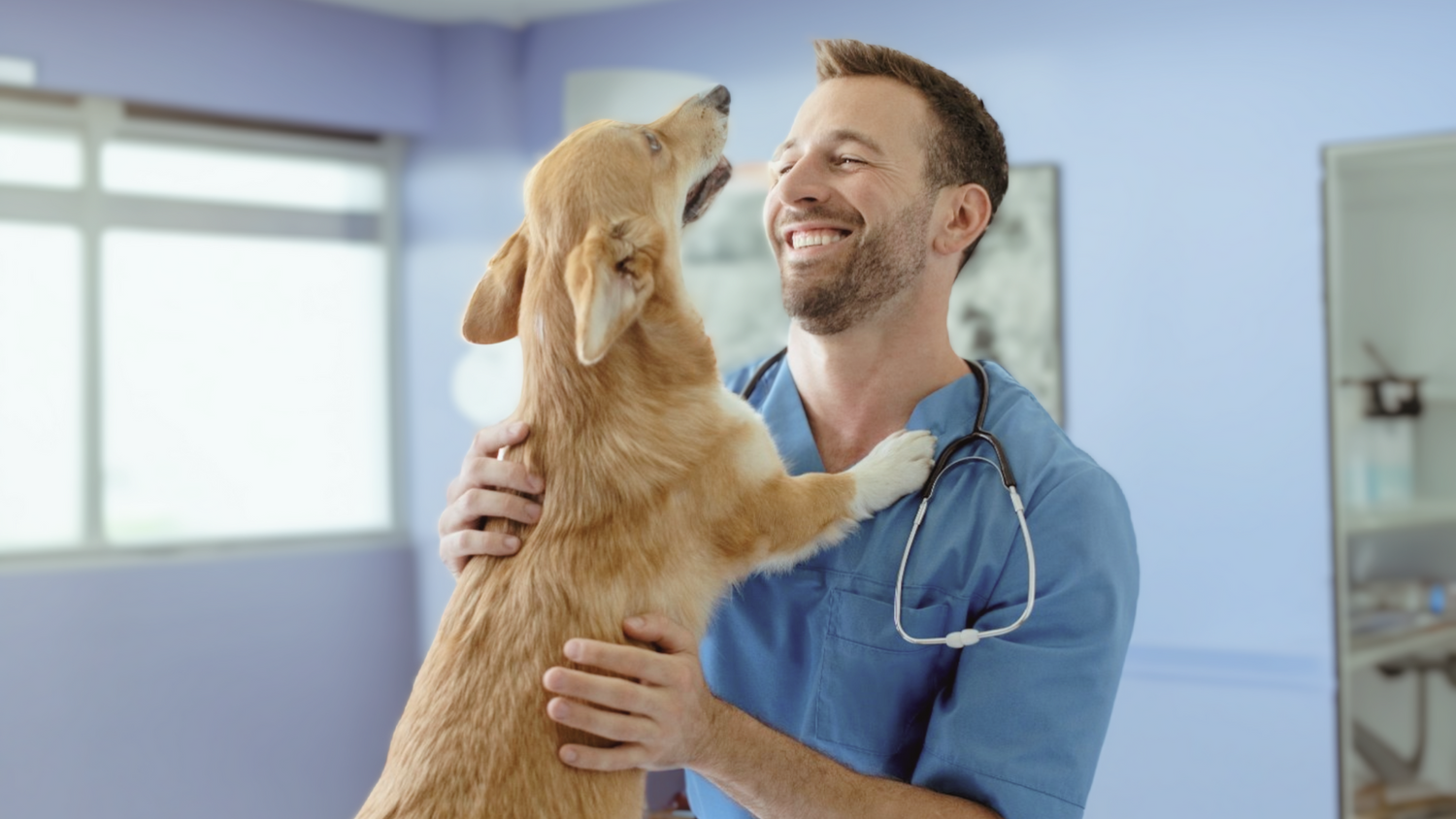Regular check-ups are key for your pet’s health and happiness. These visits to the vet help spot and fix health issues early. It’s our job as pet owners to make sure our pets get the best care. This keeps them healthy and joyful for years to come.
Key Takeaways
- Regular wellness exams are crucial for monitoring and maintaining your pet’s health.
- Veterinary professionals can detect and address health concerns early, leading to better outcomes for your pet.
- Preventive care, such as vaccinations and parasite control, helps keep your pet healthy and happy.
- Wellness exams provide an opportunity to address any questions or concerns you may have about your pet’s well-being.
- Scheduling routine wellness visits is an important aspect of responsible pet ownership.
The Importance of Regular Wellness Exams
Regular pet wellness exams are key for your pet’s health and happiness. As pets get older, they face more health problems. Catching these early is crucial for treatment. These visits let your vet check your pet thoroughly, suggest preventive care like pet vaccinations, and answer your health questions.
Early Detection of Health Issues
A pet wellness exam helps spot health problems early. This means you can treat them before they get worse. Early treatment often means a better life for your pet.
Preventive Care and Vaccinations
Wellness exams are vital for preventive care. Your vet can give your pet the right pet vaccinations to fight off diseases. They also offer advice on how to prevent fleas, ticks, and heartworms, keeping your pet healthy.
“Preventive care is the foundation for a healthy, happy pet. Regular wellness exams allow us to catch issues early and keep your furry friend in their best shape.”
Also Read : The Best Universities in America for Freelance Professionals
| Benefit | Description |
|---|---|
| Early Disease Detection | Regular wellness exams help identify health problems in their early stages, allowing for prompt treatment and better outcomes. |
| Preventive Care | Wellness exams provide an opportunity to administer necessary vaccinations and discuss preventive measures to keep your pet healthy. |
| Personalized Guidance | Your veterinarian can offer tailored recommendations based on your pet’s age, breed, and individual needs. |
What to Expect During a Wellness Exam

Regular pet wellness exams are key for your pet’s health and happiness. These checkups include a detailed physical examination. Your vet will look for any early signs of health issues.
Physical Examination
The physical exam covers your pet’s eyes, ears, mouth, teeth, skin, coat, heart, lungs, and bones. Your vet checks for any signs of infection or health problems.
Diagnostic Tests and Screenings
Your vet might suggest diagnostic tests and pet health screenings for a deeper look at your pet’s health. These can include:
- Blood work to check for underlying conditions or infections
- Urinalysis to assess kidney and bladder function
- Fecal testing to detect parasites or other gastrointestinal issues
- X-rays or other imaging techniques to evaluate bone, joint, or organ health
These diagnostic tests and screenings help catch health problems early. This means quicker treatment and better health for your pet.
“Regular pet wellness exams are the foundation of preventive care, helping to ensure your furry friend’s optimal health and longevity.”
Also Read : The 5 Worst Mistakes That You Make When Selecting Health Insurance
Pet Wellness for Dogs

Regular wellness exams are key to your dog’s health. These visits let your vet give your dog core vaccinations. These shots protect against serious diseases like rabies, distemper, and parvovirus, as the AAHA suggests.
Vaccinations for Dogs
Vaccines are vital for your dog’s health. Core vaccines protect against rabies, distemper, parvovirus, and more. They boost your dog’s immune system and keep them safe from deadly illnesses. Your vet will tailor a vaccination schedule for your dog’s needs, considering their age, lifestyle, and risks.
Preventive Medications
- Heartworm is a serious condition caused by parasitic worms. Your vet will give your dog monthly meds to prevent it.
- Fleas and ticks can spread diseases. Your vet might suggest medications to keep them away.
- Deworming treats get rid of harmful parasites like roundworms and hookworms. It keeps your dog healthy.
Working with your vet and following a proactive care plan keeps your dog happy and healthy.
| Vaccine | Purpose | Frequency |
|---|---|---|
| Rabies | Protects against the fatal rabies virus | Every 1-3 years, as recommended by your vet |
| Distemper | Prevents a highly contagious viral disease | Puppy series, then booster shots every 1-3 years |
| Parvovirus | Guards against a severe and often fatal illness | Puppy series, then booster shots every 1-3 years |
| Coronavirus | Protects against a contagious intestinal virus | Puppy series, then booster shots every 1-3 years |
Keeping your dog’s vaccinations and preventive meds current is key to their health and wellness.
Also Read : What You Need to Know About Getting A Home Loan
Pet Wellness for Cats

Keeping your cat healthy is as important as it is for dogs. During wellness exams, your vet will give your cat core vaccinations. These include shots for feline viral rhinotracheitis, calicivirus, and panleukopenia, as well as rabies. Your vet will also check for health issues specific to cats and might suggest medicines to keep your cat safe from parasites.
Vaccinations for Cats
Vaccines are key to your cat’s health care. Core vaccines for cats cover:
- Feline viral rhinotracheitis
- Feline calicivirus
- Feline panleukopenia (distemper)
- Rabies
These shots protect your cat from serious diseases. They should be given as your vet suggests.
Also Read : 3 Things You Should Know About Health Insurance: Ultimate Guide
Feline-Specific Health Concerns
Your vet will also watch for health issues unique to cats. These include:
- Dental disease: Cats often get plaque and gum inflammation, which can cause tooth loss if not treated.
- Obesity: Being overweight can lead to diabetes, joint problems, and other health issues in cats.
- Hyperthyroidism: This is when the thyroid gland works too fast, common in older cats. It can cause weight loss, more hunger, and other signs.
Your vet might suggest medicines or diet changes to help with these issues.
| Feline Health Concern | Potential Impacts | Preventive Measures |
|---|---|---|
| Dental Disease | Tooth loss, gum inflammation | Regular dental cleanings, dental chews |
| Obesity | Diabetes, joint problems | Portion control, increased exercise |
| Hyperthyroidism | Weight loss, increased appetite | Medication, dietary changes |
By focusing on your cat’s wellness, you can keep their cat vaccinations current and handle health issues early. Regular cat preventive care is crucial for your cat’s health and happiness.
Also Read : The Top 9 American Universities You Should Consider Studying In
The Benefits of Regular Wellness Exams

Keeping your pet healthy is very important. Regular vet check-ups are key to their well-being. These visits offer many benefits that boost your pet’s life quality and preventive care.
Routine wellness exams help spot health problems early. Your vet can catch issues before they get worse. This means quicker treatment and can save you money later.
Wellness exams also help with preventive care. Your vet can suggest the right shots, parasite control, and more. This keeps your pet safe from serious illnesses.
These exams are great for checking on your pet’s health. Your vet can look at your pet’s weight, teeth, and behavior. They can then give advice to keep your pet healthy.
| Benefit | Description |
|---|---|
| Early Detection | Identify potential health issues before they become more serious |
| Preventive Care | Receive tailored recommendations for vaccinations, parasite control, and other preventive treatments |
| Comprehensive Monitoring | Assess your pet’s overall health, including weight, dental health, and behavioral changes |
By going to your pet’s wellness exams often, you make sure they get the care they need. These visits are a big help for your pet’s health and happiness.
Early Disease Detection and Treatment
Regular wellness exams are key for catching health issues early in pets. Vets can spot changes in your pet’s weight during these visits. This could mean there’s a health problem. They can then guide you on the right food and exercise to keep your pet healthy.
Weight Management
Keeping your pet at a healthy weight is vital for their long-term health. Vets check your pet’s body condition and suggest a diet and exercise plan. This helps avoid obesity and its problems like diabetes, joint issues, and breathing troubles.
Dental Health
Your pet’s dental health is crucial for their overall wellness. At the wellness exam, your vet checks your pet’s teeth and gums for any issues. They can then suggest the best dental care, like regular brushing, dental treats, and professional cleanings when needed.
| Early Disease Detection | Pet Weight Management | Pet Dental Health |
|---|---|---|
| Monitoring changes in your pet’s weight can help identify underlying medical conditions early on. | Maintaining a healthy weight can prevent obesity-related issues, such as diabetes and joint problems. | Regular dental examinations can help catch dental problems before they become more serious, ensuring your pet’s overall health and comfort. |
“Preventive care is the key to keeping your pet happy and healthy for years to come.”
Scheduling Your Pet’s Wellness Exam
Keeping your pet healthy is very important. Regular wellness exams are key to their well-being. The number of check-ups needed depends on your pet’s age and health.
By knowing the right schedule, you can keep your pet in top shape.
Frequency Based on Age and Health
Puppies and kittens need wellness exams often, usually every 3-4 weeks in their first year. This helps your vet watch their growth and keep track of shots. When they grow up, they should see the vet once a year for a check-up.
But, some pets might need to see the vet more often. Pets that are older or have health issues might need to go every 6-12 months. This helps keep an eye on any changes and takes care of their specific needs.
| Pet Age | Recommended Wellness Exam Frequency |
|---|---|
| Puppies/Kittens (First Year) | Every 3-4 weeks |
| Adult (1-7 Years) | Annually |
| Senior (8+ Years) | Every 6-12 months |
| Pets with Pre-Existing Conditions | Every 6-12 months |
Following the right schedule for wellness exams helps catch and fix problems early. This is key for your pet’s long-term health.
Pet Wellness
Keeping your pet’s overall wellness in check is more than just vet visits. It’s about good food, exercise, grooming, fun activities, and a safe home. By focusing on holistic care, your pet can live a long, joyful, and healthy life.
Good pet wellness means looking after many parts of your pet’s life. Here are some key ways to keep your pet healthy and happy:
- Nutrition: A balanced diet that fits your pet’s needs is key for their health and mind.
- Exercise: Regular activity keeps your pet’s heart healthy, muscles strong, and weight in check.
- Grooming: Regular grooming keeps your pet looking and feeling great, and it’s good for their skin and fur.
- Mental Stimulation: Keeping your pet’s mind busy with toys and games helps lower stress and prevent bad behavior.
- Preventive Care: Regular vet visits, shots, and meds help catch and stop health issues early.
By focusing on these areas of pet wellness, you give your pet the full care they need to do well. A happy, healthy pet shows how much you care as a pet owner.
| Aspect of Pet Wellness | Benefits |
|---|---|
| Nutrition | Supports physical and mental well-being |
| Exercise | Maintains cardiovascular health, muscle tone, and weight management |
| Grooming | Promotes skin and coat health |
| Mental Stimulation | Reduces stress, boredom, and behavioral issues |
| Preventive Care | Enables early detection and prevention of health problems |
Preparing for Your Pet’s Wellness Visit

Getting ready for your pet’s wellness visit is key. You need to collect a stool sample and keep your pet calm. These steps are crucial for a smooth visit.
Collecting Stool Samples
Before your pet’s visit, collect a fresh stool sample. This avoids the need for a sample at the vet’s office. Put a small amount of stool in a clean container and take it with you.
This pet stool sample is important. It helps your vet understand your pet’s health.
Keeping Your Pet Calm
To make the visit stress-free, keep your pet calm. Cats should be in a sturdy carrier. Dogs should be on a leash, feeling secure but able to move.
Bring your pet’s favorite treats or toys. This can make them feel more at ease.
By doing these things, you can make the visit positive for both of you. A calm, prepared pet means a successful and informative visit.
Finding the Right Veterinary Team
Choosing the right veterinarian is key for your pet’s health. Look for a vet with the right credentials, experience, and training. They should make you and your pet feel welcome and cared for. The best veterinary professionals use pet-friendly methods and give your pet personal, caring attention.
To find the perfect veterinary team, think about these important points:
- Credentials and experience: Make sure the vet has a DVM degree and experience with pets like yours.
- Facility and equipment: Choose a clean clinic with modern tools and a comfy space for your pet.
- Communication and customer service: The staff should be friendly, listen well, and answer your questions fully.
- Approach to pet care: Pick vets who use fear-free methods and focus on keeping your pet healthy.
By carefully choosing the right veterinary team, you ensure your pet gets the best pet-friendly veterinary care. You’ll also feel at ease knowing your pet is well cared for.
“A good veterinarian is not just a medical professional, but a trusted partner in your pet’s well-being.”
Also Read : Pet Adoption Events: Finding Your Perfect Furry Friend
Conclusion
Keeping your pet healthy and happy is key to their long life. Regular wellness exams and a full approach to pet care are crucial than contact us. Working with your veterinary team and addressing your pet’s needs helps them thrive.
Pet wellness is very important. Regular pet health check-ups catch problems early. This keeps your pet happy and healthy for a long time. By focusing on your pet’s well-being, you’re investing in their future and their place in your family.
Your pet’s pet wellness is a journey, not just a goal. Always be alert, work with your vet, and give your pet the care they need. This way, you can help your pet live their best life and make lasting memories together.
FAQs
Q: What is pet wellness care?
A: Pet wellness care is a proactive approach to keeping your pet healthy through regular check-ups, vaccinations, preventative measures, and early detection of any health issues.
Q: Why is preventative care important for pets?
A: Preventative care helps to catch any health concerns early, leading to better outcomes and potentially lower treatment costs for your pet in the long run.
Q: How often should I take my pet for a wellness check-up?
A: It is recommended to take your pet for a wellness check-up at least once a year, but more frequent visits may be necessary for older pets or those with ongoing health issues compassionate.
Q: What services are typically offered at a pet wellness clinic?
A: Pet wellness clinics usually offer services like vaccinations, parasite control, dental care, nutrition counseling, behavior consultations, and general wellness exams.
Q: How can I request an appointment at a pet wellness clinic?
A: You can request an appointment at a pet wellness clinic by calling the clinic directly or using their online appointment booking system, if available.
Q: What should I expect as a new client at a pet wellness clinic?
A: As a new client, you can expect a warm welcome, thorough examination of your pet, discussions about their health needs, and guidance on preventative care and wellness plans.
Q: Why is dental care important for pets?
A: Dental care is crucial for pets as dental issues can lead to more serious health problems. Regular cleanings and dental check-ups can prevent issues like gum disease and tooth decay.




